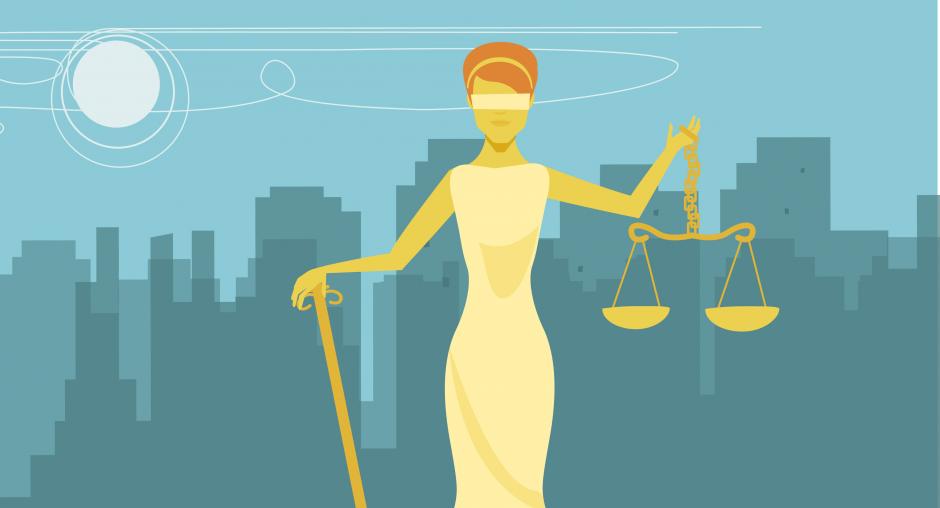
Image credit: www.osce.org
One day everyone has to die and no one is immortal on this
earth. God treats everyone equally and all the creations of god are regulated
by uniform law. Same as law is necessary for the protection, peace, development
and prosperity of any nation. Without law there can be no order and without
order there can be no peace and progress. Without law society will be the part
of jungle. Everyone will be wild, violent, and greedy and mighty has right will
prevail. That's why law is mandatory for preventing injustice.
The first direct product of the common
law system is the public law. The most important principle of it is the rule of
law. The rule of law implies that government authority may only be exercised in
accordance with written laws which are adopted through an established
procedure. It means "government of laws and not of men." The
principle is intended to be a safeguard against arbitrary rulings in individual
cases. The doctrine does not speak anything about the 'justness' of the laws
themselves, but simply how the legal system upholds the law.
The concept of rule of law is generally
associated with several other concepts like:
(a) presumption of innocence - all
individuals are innocent until proven otherwise;
(b) double jeopardy - individuals may only
be punished once for every specific crime committed. Retrials may or may not be
permitted on the grounds of new evidence;
(c) legal equality – all individuals
are given the same rights without distinction to their social stature,
religion, political opinions, etc.; and
(d) habeas corpus - term meaning 'you
must have the body'. A person who is arrested has the right to be told what
crimes he or she is accused of, and to request his or her custody be
reviewed by judicial authority. Persons
unlawfully imprisoned have to be freed.
The classic description of the doctrine
of rule of law by A. V. Dicey includes
All these are included as fundamental rights in Part III of Constitution of India.
(1) the absence of arbitrary powers on
the part of the Government which always acts according to law,
(2) legal equality, that is, no man is above
the law and that everyone is subject to the ordinary law of the land and is
amenable to the jurisdiction of the ordinary courts and tribunals, and
(3) the customary and the common law
rights of the people resulting in judicial decisions to form the general rules
of constitutional law.
Basically, individual liberty was the
outcome of the rule of law. It could not be affected except in accordance with
law. The burden was, therefore, on the state or the public officials to show
that their action affecting an individual is justified by law.
The success of the rule of law in
England was due to the co-operation between the lawyers, the judiciary, and the
Parliament. The rule of law and the sovereignty of Parliament worked harmoniously
in their common attempt to limit the power of the executive.
But the basic weakness of the rule of
law based on ordinary law is that the spirit of the rule of law is perverted
when legislation results in unjust laws. With the freedom-loving tradition of
the British people the principle of parliamentary sovereignty did not come into
conflict with the rule of law because Parliament did not violate the spirit of
the rule of law by unjust legislation.
Originally the rule of law merely
protected the individual from the arbitrary actions of the state including the
legislature. Later, the weaker sections of the society who are exploited by
those who wielded power had to be protected by the state itself against private
economic power. Inequality in societies had to be removed with a view to
establishing an egalitarian order. The role of the state instead of being
merely negative (abstaining from interfering with the liberties of the people)
became positive (to protect the weak against the strong, the exploited against
the exploiter and the poor against the rich).
In the International Congress of
Jurists held in 1959 at New Delhi, the very first clause of the report of the
First Committee reoriented the rule of law as follows: The function of the
legislature in a free society under the rule of law is to create and maintain
the conditions which will uphold the dignity of man as an individual. This
dignity requires not only the recognition of his civil and political rights but
also the establishment of the social, economic and educational and cultural
conditions which are essential to the full development of his personality.
In concrete terms in India it meant
that legislation to bring about equality and social welfare to implement the
directive principles of state policy set out in Part IV of the Constitution
would also be construed as conducive to the broader concept of the rule of law
and, therefore, in consonance with the fundamental rights of the individual
guaranteed by Part III of the Constitution.
Thanks for reading. Please follow and share this blog and comment below the subject on which you want notes.

No comments:
Post a Comment